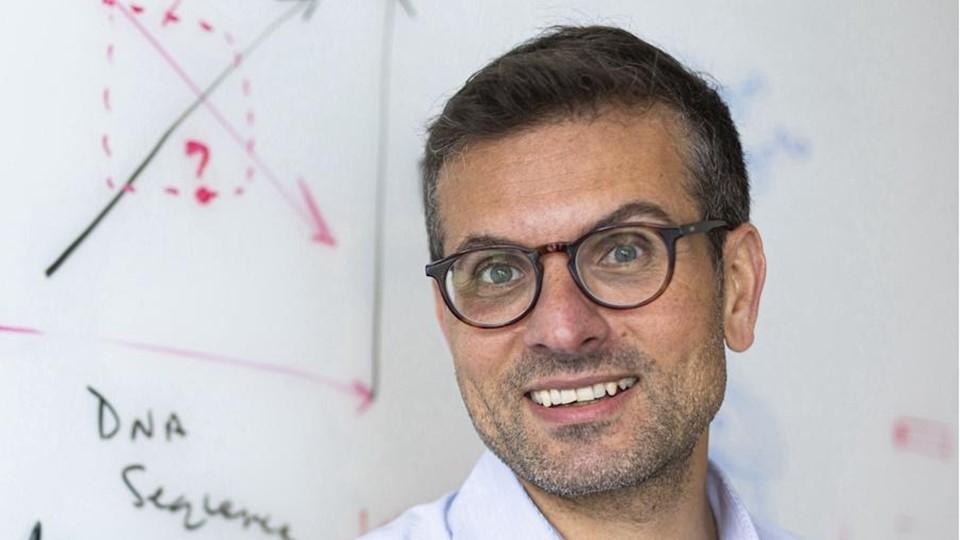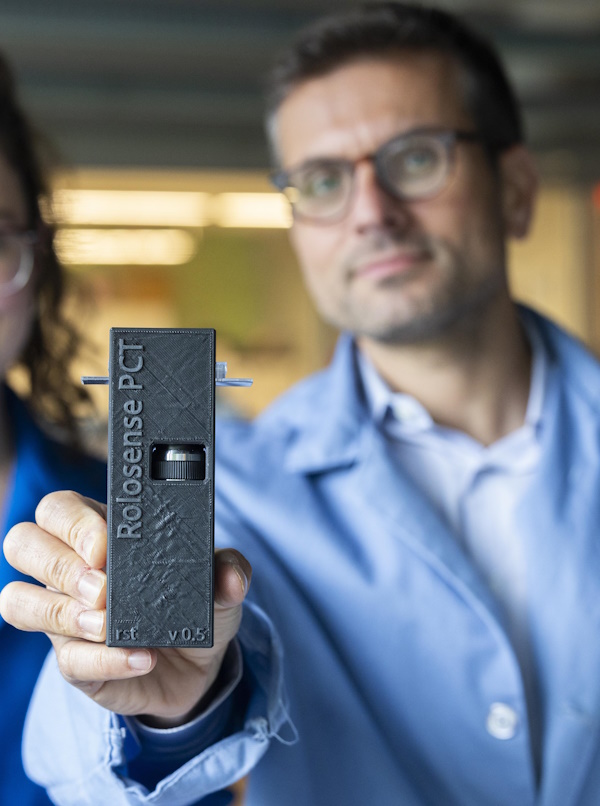Merck gives €500k prize to pandemic early warning system

The developer of a sensor designed to continuously monitor indoor spaces for pathogens that could cause pandemics has been given a €500,000 prize by Germany’s Merck KGaA in the company’s annual Future Insight competition.
The award to Khalid Salaita, professor of chemistry at Emory University in the US, will go towards the next stage of research into the Rolosense technology, which has already been shown to detect SARS-CoV-2 and influenza A in early testing.
According to Salaita, it has the potential to help mitigate or possibly even prevent a future pandemic. Theoretically, it could be programmed to simultaneously screen for a wide group of viral pathogens within a breath sample or from indoor air.
“Our ultimate goal is to develop automated viral air sensors that function similar to smoke detectors,” said Salaita. “These sensors could be located in busy locations like airports, hospitals, and schools to continuously monitor aerosolised particles for viruses.”

Rolosense is based on micron-scale, low-cost ‘DNA motors’, which can sense chemical or genetic information in the environment, process the signal, and generate a response and were first described by Salaita’s lab in 2015.
The motors are made from DNA-coated spherical particles that move in response to a stimulus, with the resulting readout detectable using a smartphone camera in minutes, with no sample preparation required.
The motors can be programmed to look for pathogens, but have myriad other potential applications, including other forms of biosensing like medical diagnostics, molecular computing, creating synthetic cells, and testing molecular structure-function relationships at the nanoscale.
“The importance of being prepared has been a key lesson from the COVID-19 pandemic,” said Belén Garijo, Merck’s chairman and chief executive.
“There are many promising collaborations to build an inclusive global framework for pandemic preparedness, but we still lack an effective early warning system to detect potential threats before it is too late,” he added. “The pioneering work of Khalid Salaita could help fill this urgent gap in our global defences.”
The Salaita lab researchers said their goal is to have viable products available to provide rapid ways to detect airborne viral pathogens within five years.
Some scientists estimate that the world could face a pandemic or serious outbreak at least once every five years from here on, with some warning that we are no better prepared for a pandemic than we were before COVID-19.











